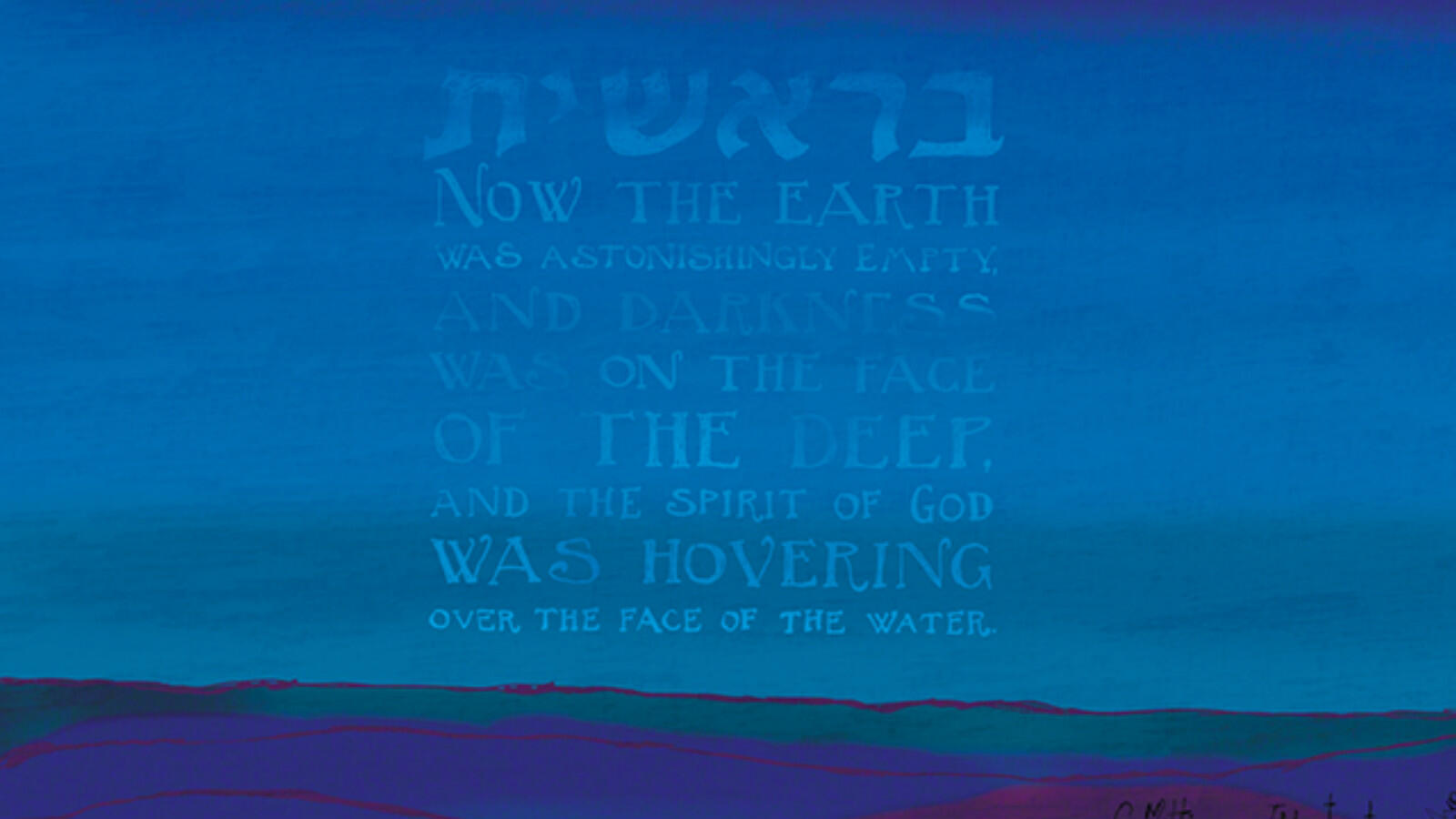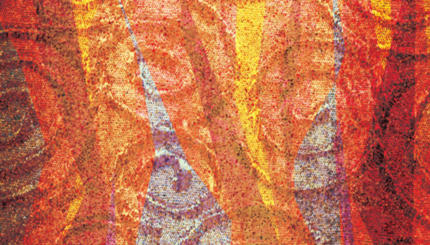Commentary on Parashat Bereshit, Genesis 1:1-6:8
Parashat Bereshit, the very first portion of the Torah, features what is arguably the foundational story of Western culture. Adam and Eve, the progenitors of humankind, are created by God and ordained as the masters of all of creation. God plants a garden, fills it with fruit-bearing trees, and places Adam and Eve within it with one rule to follow: Don’t eat from the Tree of Knowledge.
As we know, that was too much for Adam and Eve, who ate from the tree and were banished from Eden. In Christian thought, this incident is known as the fall, the act of original sin from which mankind must spend all of eternity trying to recover — in the words of Joni Mitchell, to “get ourselves back to the garden.”
But the word “sin” is nowhere to be found in the biblical account. And while it’s clear God is displeased with this act of defiance, cursing Eve with the pain of bearing children and condemning Adam to labor for his sustenance, it’s possible to read this story not as a morality tale about the perils of disobedience, but as the beginning of humanity’s path to fulfilling its destiny.
Man’s first act is an act of rebellion. And in so doing, Adam and Eve exercise the very freedom of choice that is essential for their progeny’s choices to have any meaning at all. Had Adam and Eve remained in the garden, blindly obedient to a God with the capacity to cast them out and condemn them to a lifetime of physical toil, their choice to do God’s will would be of little significance. Obeying God only has value if we have the option of doing otherwise. Theocrats of the world, take note.
With your help, My Jewish Learning can provide endless opportunities for learning, connection and discovery.
The journey from Eden presages another journey we will encounter just a few weeks hence, when God commands Abraham to leave his own Eden, the familiar land of his birth, for a place that God promises to show him. Like Adam, Abraham too will use his human freedom to turn on God, audaciously challenging God’s decision to destroy the city of Sodom — and prevailing, eventually persuading God to agree to save the city if 10 righteous men can be found there.
The freedom embodied in Adam and Eve’s defiance of God is perpetuated, and perhaps justified by Abraham, who uses that same freedom to strike a blow on behalf of justice, marking an important milestone in human development. And it anticipates the nation the Abraham will go on to father, the Israelites — the God-wrestling people.
The creation of human beings with the capacity for defiance is also one way to understand the famous line in Parashat Bereshit, in which God determines to make man “in our image, after our likeness.” The most basic understanding of this verse is that all human beings carry a spark of divinity with them — that they are, in effect, holy as God is holy. This is why the talmudic sage Ben Azzai says this is the most fundamental principle in all of Torah.
But the first thing we learn about God in Parashat Bereshit is not that God is holy, but that God is a creator. And it is creativity — the capacity to think and act in free and novel ways, to act counter to the natural order, to rebel — that constitutes the shared ground between man and God. This is why God responds to Adam and Eve’s rebellion by saying the act had made man “like one of us,” which happens to be the exact promise the snake had made to Eve in tempting her to eat from the tree in the first place, assuring her that “you will be like divine beings knowing good and bad.”
Man’s capacity for freedom of thought and action, embodied in the ability to disobey, is what makes man a creature in the divine image. This doesn’t necessarily lead to good and holy outcomes, as any glance at the morning paper shows. Freedom isn’t necessarily pretty. Often, it’s scary. But it is essential to the full flowering of our humanity.
Particularly at moments of crisis and difficulty, whether personal or societal, there’s a temptation to trade the freedom that is humanity’s birthright for the security of Eden — to retreat into the garden where all is assured as long as we follow the rules. But this week’s Torah portion suggests this is not the way the human story is meant to unfold. The creation of humanity in God’s likeness is precisely what affords us the choice to be like God — to act independently, whether for good or evil.
Read this Torah portion, Genesis 1:1 – 6:8, on Sefaria
You May Also Like:
Sign up for our “Guide to Torah Study” email series and we’ll guide you through everything you need to know, from explanations of the major texts to commentaries to learning methods and more.
Subscribe to A Daily Dose of Talmud: Daf Yomi for Everyone — every day, you’ll receive an email that offers an insight from each page of the current tractate of the Talmud. Join us!
About the Author: Ben Harris is a Senior Editor at My Jewish Learning’s parent organization, 70 Faces Media.



